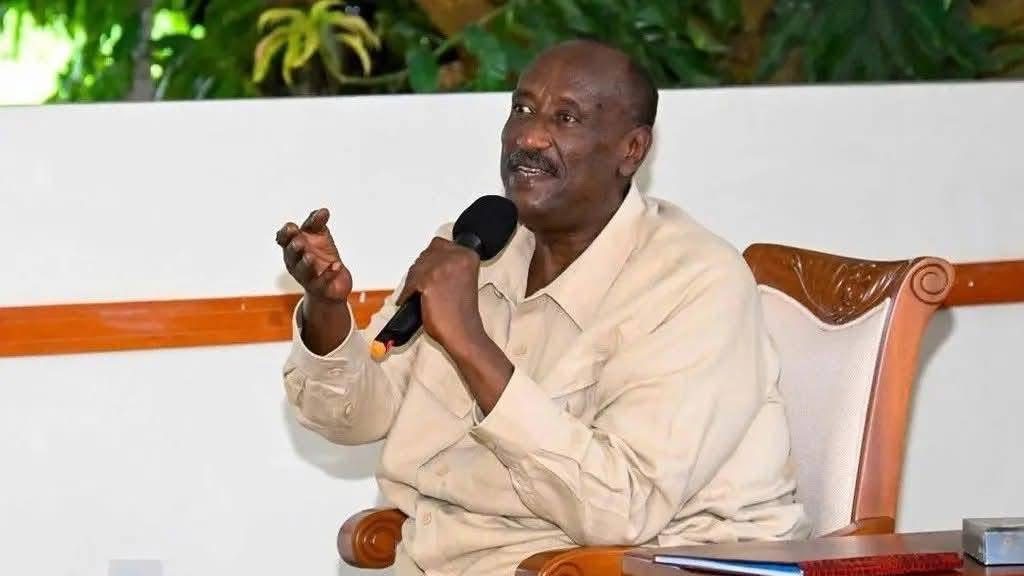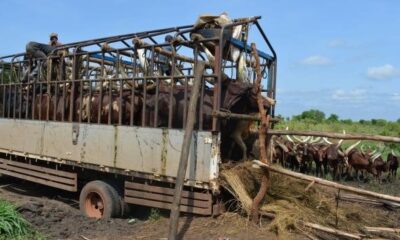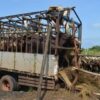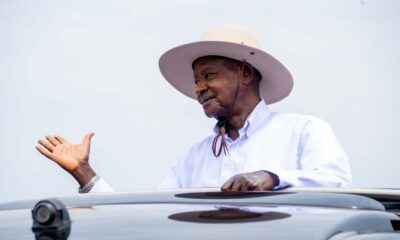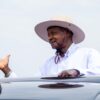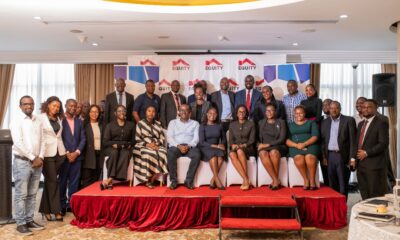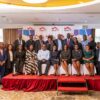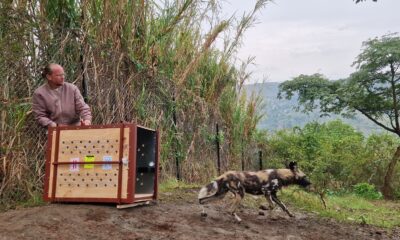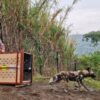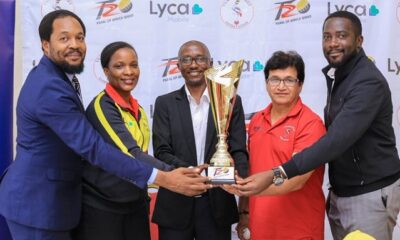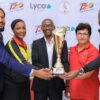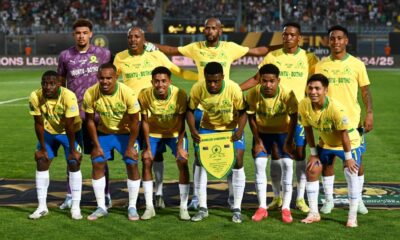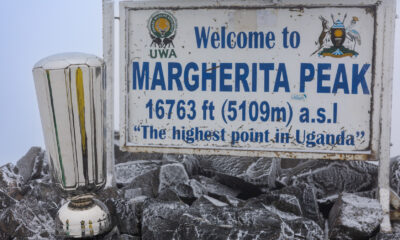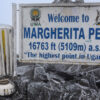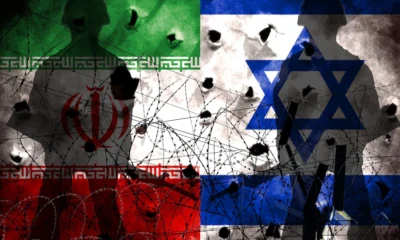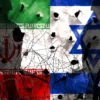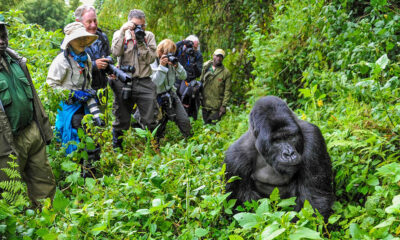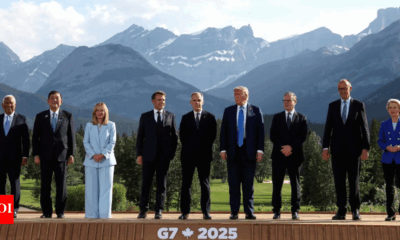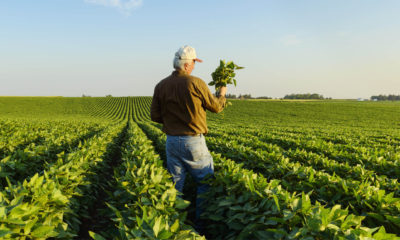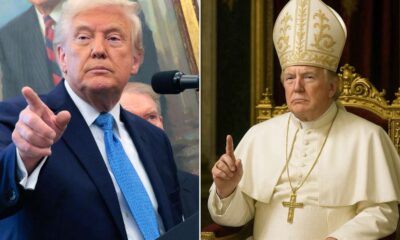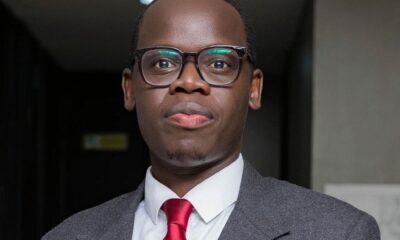News
Gen. Saleh Calls for National Debate on Uganda’s Land Question Amidst Growing Conflicts
General Caleb Akandwanaho, widely known as Salim Saleh, a decorated veteran and brother to President Yoweri Museveni, has issued a powerful call for a national debate on Uganda’s intricate and increasingly contentious land question. Speaking virtually from his tactical base in Gulu to the Fourth Uganda Development Forum (UDF) meeting in Kampala, Saleh emphasised that the current state of land ownership and utilisation is a significant impediment to the nation’s economic progress and a root cause of escalating conflicts across the country.
Saleh, who chairs the Uganda Development Notes and serves as the Chief Coordinator of Operation Wealth Creation (OWC), highlighted land as the “most distorted factor of production” during his address. “When we went into the field as Operation Wealth Creation – OWC, we found it to be the most distorted factor of production. And that was land,” he asserted, underscoring the deep-seated issues that hinder effective wealth creation at the grassroots level.
The general’s presentation, guided by technical notes including those from Physical Planning Board Chairperson Amanda Ngabirano, stressed the urgent need for a comprehensive understanding of Uganda’s land use balance sheet. “Because land is a factor of production. Now, Amanda is asking us, do we really understand what to do with land to be able to feed people? By 204,0 when we shall be forty million people,” he challenged the audience, pointing to the looming food security concerns tied to land management.
Saleh revealed his personal initiative to fundraise for a study into land ownership in Kampala, acknowledging the widespread belief that he himself owns a vast portion of the city. “Everybody thinks I own half of Kampala. I think I have a maximum of two acres,” he quipped, before reiterating the gravity of the issue.
He urged the forum, themed “Sustaining Musevenomics: Navigating Uganda’s Economic Future in a Disrupted World,” to prioritise the land factor. Drawing from his own experience with the successful Namunkekera-Liao Shen Industrial Park in Kapeeka, Saleh stated, “We know the stimuli that we used to resurrect the economy, we know the security of persons and property, privatisation and liberalisation, return of Asian properties and all those. But I want the conference to focus on the factor land as a factor of production and we see these distortions.”
The General directly addressed the spiralling land conflicts, citing not only those in Buganda but also the ongoing tensions in Northern Uganda, particularly the debate surrounding the eviction of “Balaalo” herdsmen. “Even in Northern Uganda right now, the issue is land. The conflict between the Acholi and what they call Balaalo or what we call migrant cattle keepers is about land,” he explained, highlighting the widespread nature of the problem.
Reflecting on OWC’s decade-long mission to uplift the “moneyless people,” Saleh admitted it has been a challenging endeavour. “We struggled with inputs, with coffee, with tea, all those inputs over that period. And statistically, they say we are able to reduce the people out of the money economy from 68% to about 39%,” he reported, demonstrating OWC’s impact despite the land-related hurdles.
A Look Back: NRM-DP Alliance and the Future of Cooperation
General Saleh also used the platform to address the ongoing debate within the Democratic Party (DP) concerning his proposed address to their upcoming delegates’ conference. He reminded attendees that a significant portion of Museveni’s first cabinet in 1986 comprised DP stalwarts. “Sixty per cent of the ministers were from DP. So I have been arguing with Chairman Mao what caused the divorce,” he recounted, expressing personal discomfort over the NRM’s “divorce” from a party with whom they had collaborated for a decade.
“And in those ten years when we were working together, I think that is when Uganda was recording a double-digit growth. But when we started fragmenting, that is when we got a lot of issues,” Saleh reflected, suggesting a link between political fragmentation and economic challenges.
He openly praised Norbert Mao, the Minister of Justice and Constitutional Affairs and DP President, who serves as his Vice Chairperson in the UDF think tank. “He (Mao) is my vice chairperson in UDF in think-tanking. And we are doing very good work. So I wish him well in his delegates’ conference,” he affirmed, seemingly endorsing continued collaboration. The alliance between NRM and DP, forged in 2022, has drawn scrutiny, with some critics suggesting it primarily benefits Mao and his inner circle.
The Uganda Development Forum, a brainchild of General Saleh himself, with Minister Mao as his deputy, serves as a crucial platform for intellectual discourse on Uganda’s future, attracting experts such as former spy chief David Pulkol and Dr. Philip Idro. Saleh’s call for a national debate on land, delivered with characteristic candour and conviction, is likely to spark significant discussion and potentially shape the national agenda in the coming months.
Comments



